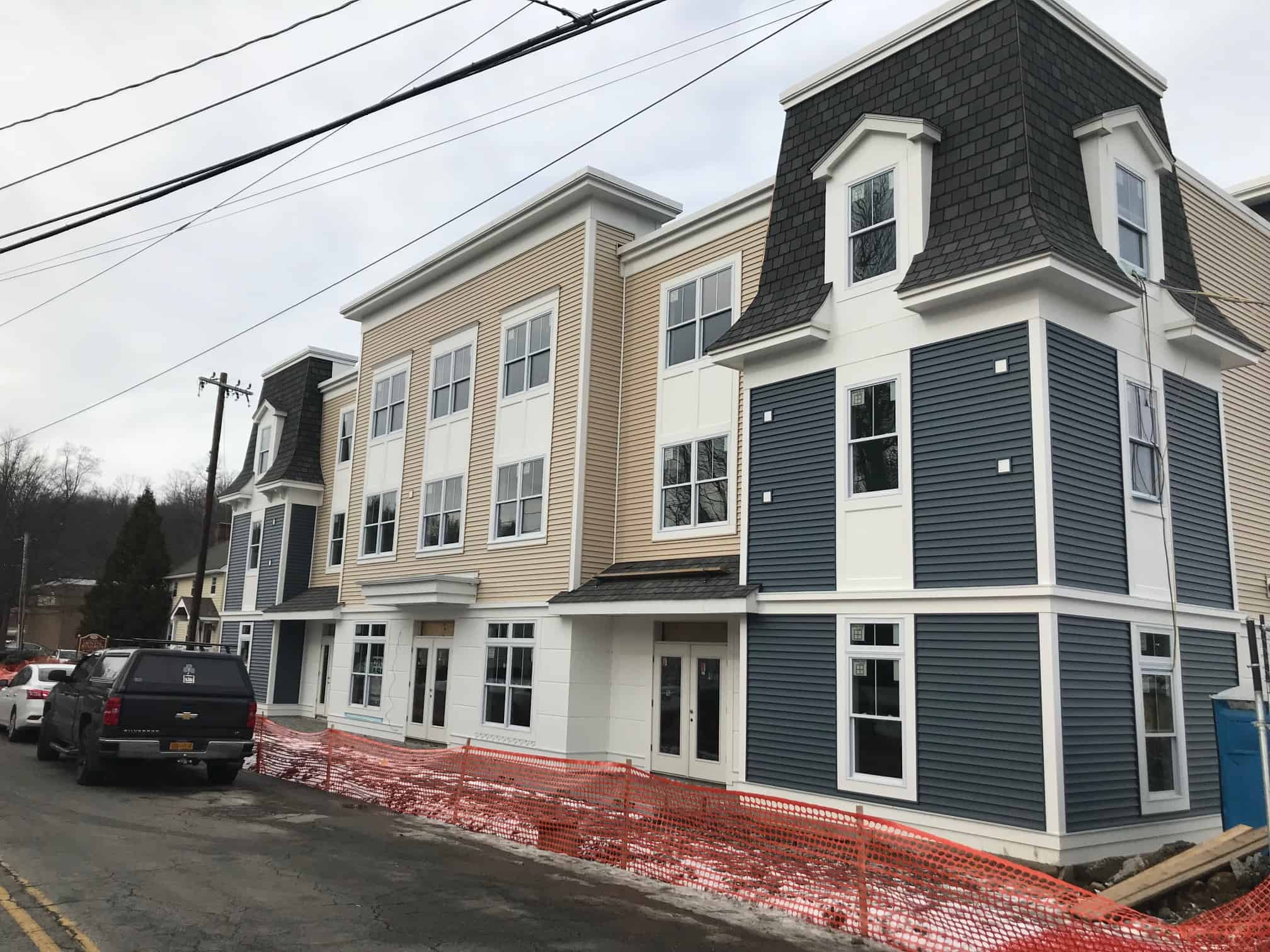
By Dan Murphy
Last summer, former County Executive Rob Astorino announced that the Federal Department of Housing and Urban Development, under new President Donald Trump, agreed to Westchester County’s Articles of Implementation, AI, which settled the decade-long lawsuit by the federal government against Westchester regarding affordable housing.
That announcement was supposed to end a bitter battle that Astorino forged against HUD and the federal government, and the monitor appointed to oversee the case, James Johnson.
Johnson and Astorino had some legendary battles throughout Astorino’s eight years in office, with Astorino accusing HUD of trying to change and strong-arm local zoning codes, while Johnson claimed that Westchester was employing “exclusionary zoning” to prevent affordable housing from being built in the 31 small villages of Westchester that have white populations of more than 95 percent.
Throughout the public feud with HUD, Westchester County continued to finance and build the 750 units of affordable housing required under the agreement and settlement signed in 2009 by then County Executive Andy Spano. Now, more than one year after HUD approved Westchester’s AI, and with the election on a new county executive, the final seal of approval has yet to be delivered.
The new federal appointed monitor is Stephen Robinson, a partner in the New York City law firm of Skadden Arps, who charges $675 per hour – and that’s his discounted rate! Robinson served as a federal judge in White Plains District Court from 2003 to 2010. While Robinson has stated that HUD officials and Westchester County government officials both believe that the county has complied with the settlement, Robinson wants to conduct his own research before he signs off and closes the file.
Robinson was appointed in February 2017 but has not billed the county for any of his time, claiming in a Journal News story that his law firm has approved any time he has spent as pro-bono. Robinson has also not filed the Annual Report, which was due at the end of 2017.
The new administration of County Executive George Latimer is patiently waiting Robinson’s decision and report, which they hope by year’s end closes the matter. Affordable housing advocates are hoping to whisper in Robinson’s ear that local governments need to be sued to get their local zoning codes overturned and outlawed to open up more areas for affordable housing.
In other matters related to affordable housing, Latimer has re-established the Westchester Urban County Consortium, which consists of 25 Westchester towns and villages. A cooperation agreement between the local governments and the County Board of Legislators was submitted to HUD to attempt to start getting Federal Community Development Block Grants, after a 10-year hiatus.
In addition to CDBG grants, which provide funds to local municipalities and nonprofits for physical facilities and public services, Westchester communities in the consortium are also eligible for HOME Program grants, which provide funds to developers of affordable housing; and Emergency Solutions Grant, which provide funds to non-profits for homeless and eviction prevention programs on behalf of the Urban Consortium.
“Westchester County stands to get millions in much needed funding from these programs,” said Latimer. “I am pleased to have jump-started the process for municipalities and nonprofits to receive much-needed federal funding for important local projects such as infrastructure improvements and community development. This is another example of how working cooperatively at all levels of government, we can provide real benefits to residents and save money for local taxpayers.”
The 2019 grants would be the first the county has received since 2010. The county had lost its eligibility due to non-compliance with the HUD Fair and Affordable Housing Settlement. With the acceptance by HUD of the AI, the county has in place the required study of barriers to fair housing and can once again apply.
“Re-establishing the Westchester County Urban Consortium is an important step forward in securing the necessary federal resources to meet the community development, housing and infrastructure needs of our communities,” said Congresswoman Nita Lowey. “I was proud to have brokered an agreement with New York State in 2015 that made $5 million in HUD funding available to local governments and nonprofits, which were kept from receiving these funds because of the then-county administration’s non-compliance with a legal settlement. Important federal investments will continue to be made in projects throughout Westchester, from public infrastructure to child care services, and I thank County Executive Latimer and his administration for their commitment to our consortium partners.”
Greenburgh Town Supervisor Paul Feiner added: “Greenburgh is very glad that Westchester County is re-establishing the consortium to receive Community Development Block Grants. Since (unincorporated) Greenburgh does not have a large enough population to apply for these federal grants directly, we need to work cooperatively with the county and other municipalities to be eligible for these federal funds. The town has benefitted from this funding in the past, and we are grateful to County Executive George Latimer for reviving this opportunity, so we can benefit from these federal grants going forward.”
Below is the list of local municipalities with approved agreements, and members of the Westchester Urban County Consortium: Ardsley, Bedford, Buchanan, Cortlandt, Croton, Dobbs Ferry, Elmsford, Greenburgh, Hastings, Irvington, Lewisboro, Mamaroneck Town, Mamaroneck Village, Mount Kisco, Ossining Town, Ossining Village, Pelham Village, Pleasantville, Port Chester, Rye Brook, Rye Town, Scarsdale, Sleepy Hollow, Tarrytown Village and Yorktown
Four Westchester cities are directly eligible for CDBG grants – Mount Vernon, New Rochelle, White Plains and Yonkers.
Finally, Latimer recently appointed White Plains resident Saad Siddiqui, Esq., as fair housing director of the county’s Human Rights Commission. Westchester County Fair Housing Law outlaws discrimination of any kind during a prospective home seeker’s search for housing. Discrimination includes actions from advertisers, appraisers, bankers, real estate offices, brokers and home inspectors – who are all required to give equal treatment to all residents interested in renting or buying housing in Westchester.
“Saad brings a wealth of knowledge and legal experience, both in government and private practice, to this important position,” said Latimer. “In Westchester, we don’t tolerate discrimination of any kind – especially during the already difficult process of finding housing. I was proud to help craft the Westchester County Human Rights Legislation during my time on the Board of Legislators and was proud to see the board continue this work with its adoption of Fair Housing Laws in 2008. I firmly believe Saad is the right person to implement these laws in 2018.”
Siddiqui is a partner and co-founder of the law firm of Ferrante & Siddiqui, LLP and maintains a diversified law practice with an emphasis on criminal and immigration law. Siddiqui said:
“As an immigrant and minority myself, I personally recognize the need to confront discrimination and protect the rights of all people,” said Siddiqui. “For these reasons, I have devoted my personal and professional life to defend the rights of others and provide a voice for the underprivileged and underrepresented. As an attorney I have represented hundreds of indigent defendants charged with felonies from arraignment to disposition. Because many of my clients, past and present, have been victims of discrimination and profiling, I have strived not only to reach a fair and appropriate outcome to resolve their cases, but also to ensure that they would never be victims of discrimination and profiling again. I look forward to bringing my experiences to this new role and serve the people of Westchester.”
Prior to entering private practice, Siddiqui was associate counsel in the Criminal Division of the Legal Aid Society of Westchester County. Additionally, Siddiqui serves on the Board of Directors of the Lower Hudson Valley Chapter of the New York Civil Liberties Union, the Criminal Justice Institute of the Elisabeth Haub School of Law at Pace University, and the Youth Shelter Program of Westchester County – an alternative to incarceration.
The commission can be contacted for more information or to file a complaint by phone at 914-995-7710 or in-person at 112 E. Post Road, third floor, White Plains.





